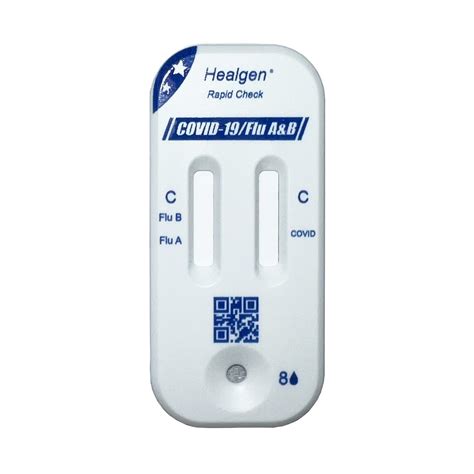Order Covid Tests: Accurate Results Guaranteed

The COVID-19 pandemic has brought about a significant shift in the way we approach healthcare, with testing playing a crucial role in the identification, prevention, and management of the disease. As the world continues to grapple with the challenges posed by COVID-19, the importance of accurate and reliable testing cannot be overstated. With the myriad of testing options available, it’s essential to understand the different types of tests, their mechanisms, and what to expect when ordering COVID tests.
Understanding COVID-19 Tests
COVID-19 tests are broadly categorized into two main types: diagnostic tests and antibody tests. Diagnostic tests are designed to detect the presence of the SARS-CoV-2 virus, which causes COVID-19, and can be further divided into molecular tests (such as PCR tests) and antigen tests. Molecular tests detect the genetic material of the virus, while antigen tests identify specific proteins on the surface of the virus. Antibody tests, on the other hand, detect the presence of antibodies produced by the body’s immune system in response to the virus, indicating a past infection.
Molecular Tests (PCR)
Molecular tests, particularly PCR (Polymerase Chain Reaction) tests, are considered the gold standard for COVID-19 diagnosis. They involve collecting a sample from the throat or nasal cavity and then amplifying the viral genetic material to detectable levels. PCR tests are highly sensitive and specific, meaning they can accurately identify the presence of the virus even when it’s in small quantities. However, the process can take several hours to produce results, and the tests require specialized equipment and trained personnel.
Antigen Tests
Antigen tests are quicker and more straightforward than molecular tests. They work by detecting specific proteins on the surface of the SARS-CoV-2 virus. While they are less sensitive than PCR tests, meaning they might not catch early infections or those with low viral loads, antigen tests can provide results in as little as 15 minutes. This rapid turnaround makes them invaluable for point-of-care testing and in situations where quick decisions are needed.
Antibody Tests
Antibody tests check for the presence of antibodies in the blood, which are proteins produced by the immune system in response to an infection. These tests can indicate whether someone has had COVID-19 in the past. However, they are not useful for diagnosing current infections because it takes time for the body to produce antibodies. Antibody tests also cannot confirm whether an individual is immune to future infections.
Ordering COVID Tests: What to Expect
When ordering COVID tests, several factors come into play, including the purpose of the test, the type of test required, and the individual’s health status. Here are some steps and considerations:
Consultation: If you’re considering ordering a COVID test, it’s advisable to consult with a healthcare professional first. They can provide guidance based on your symptoms, exposure history, and health status.
Type of Test: Depending on your situation, your healthcare provider may recommend a diagnostic test to check for an active infection or an antibody test to see if you’ve had the virus before.
Testing Locations: Tests can be administered at various locations, including healthcare provider offices, clinics, and testing sites. Some tests are also available for home use, where you collect your own sample and send it to a lab for analysis.
Results: The time it takes to get your test results varies. For PCR tests, results might take a few hours to a few days. Rapid antigen tests can give results in minutes. It’s essential to follow up with your healthcare provider to discuss your results, especially if you test positive or have been exposed to someone with COVID-19.
Privacy and Confidentiality: Your test results are confidential and protected by healthcare privacy laws. However, in the context of public health, entities like local health departments may be notified to track the spread of the disease and prevent outbreaks.
Ensuring Accurate Results
To guarantee accurate results, it’s crucial to follow the testing instructions carefully, whether you’re taking a test at home or at a medical facility. Here are a few tips:
- Sample Collection: Make sure to collect your sample correctly, as improper collection can lead to false-negative results.
- Timing: For diagnostic tests, timing is everything. Testing too early in the course of the disease might yield false-negative results.
- Isolation: If you’re testing because you’ve been exposed or are showing symptoms, it’s crucial to isolate yourself from others to prevent potential spread until you receive your results.
Conclusion
Ordering COVID tests is a straightforward process, but understanding the types of tests available, their accuracy, and what the results mean is vital. By consulting with healthcare professionals and following testing guidelines, individuals can play a significant role in managing and preventing the spread of COVID-19. As the pandemic continues to evolve, the development of more accurate, rapid, and accessible testing solutions will remain a critical component of global health strategies.
What is the difference between a PCR test and an antigen test for COVID-19?
+A PCR (Polymerase Chain Reaction) test detects the genetic material of the SARS-CoV-2 virus and is considered highly sensitive and specific. An antigen test detects specific proteins on the surface of the virus and is quicker but less sensitive than PCR tests.
How long does it take to get COVID-19 test results?
+The time to get COVID-19 test results varies. PCR tests can take several hours to a few days, while rapid antigen tests can provide results in as little as 15 minutes.
What does a positive antibody test result mean?
+A positive antibody test result indicates that you have been infected with COVID-19 at some point in the past. It does not necessarily mean you are immune to future infections.
In the battle against COVID-19, knowledge and preparedness are key. By understanding the nuances of COVID testing and ensuring that tests are used appropriately and interpreted correctly, we can better navigate this pandemic and work towards a healthier future for all. Whether you’re seeking to understand your current health status, confirm a diagnosis, or contribute to public health efforts, accurate and reliable COVID-19 testing is an indispensable tool.



